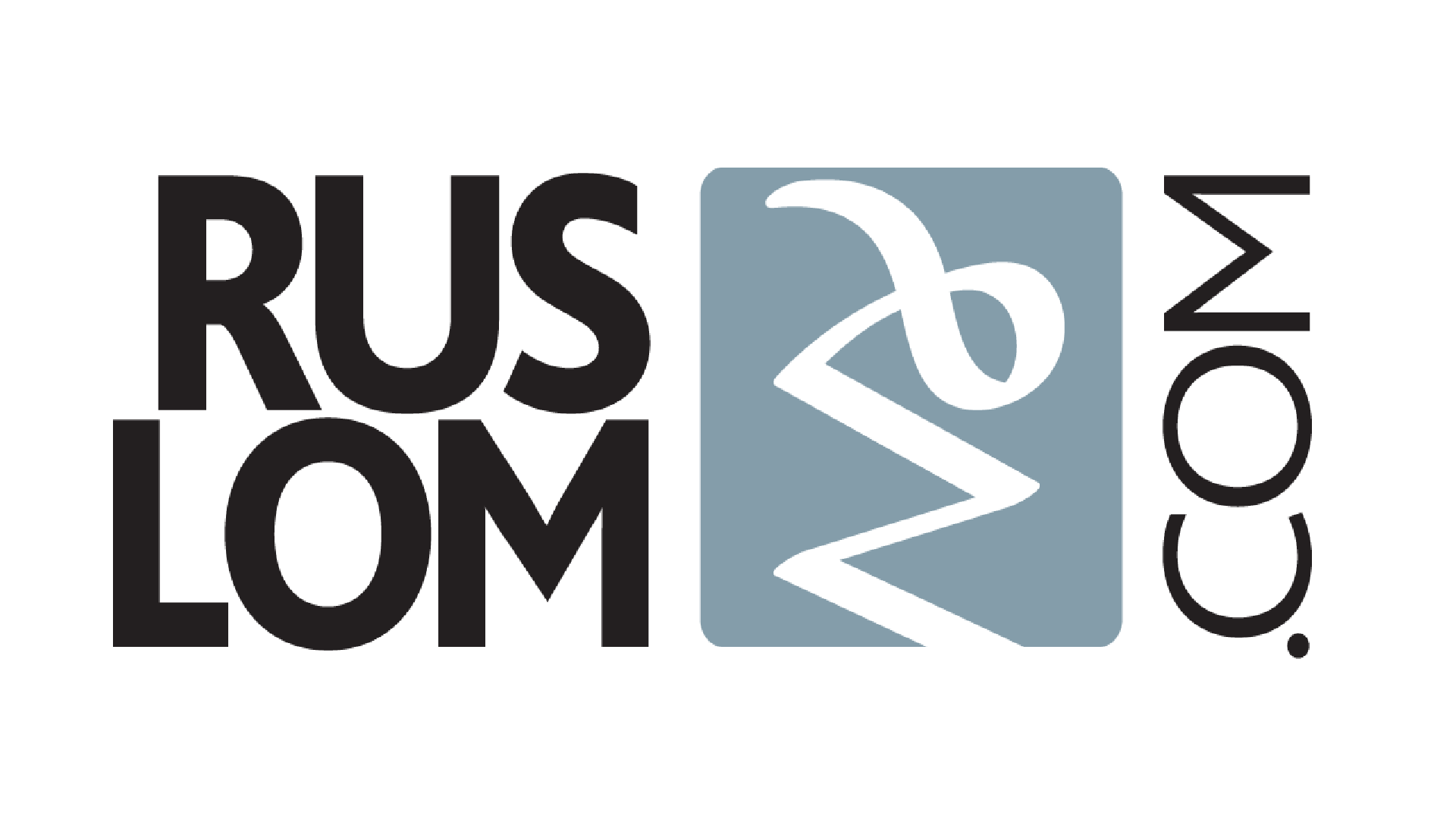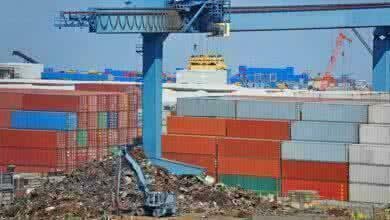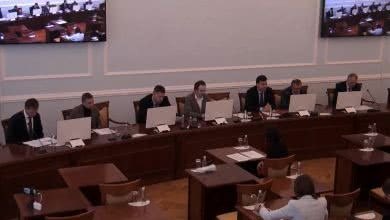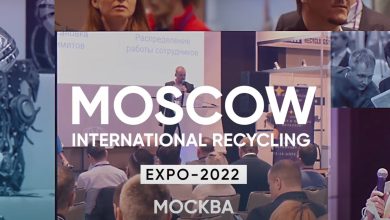On 8 December 2023 in Moscow the regular general meeting of the members of the National Recycling Association RUSLOM.COM was held. The agenda included reports of the Association’s officials and voting by the members of the self-regulatory organisation on pre-designated issues. The issues submitted for voting and approval by the general meeting:
- Report of the President on the results of the Presidium of the Association, the results of regional events in 2023.
- Report of the Director on the results of the Association’s activities in 2023.
- Approval of the Plan of realisation of priority directions of the Association’s activity for 2024-2026.
Issues for discussion not submitted for voting procedure:
- Reports of representatives of committees and commissions of the Association on the results of activities in 2023.
- Announcement of the plan of events and activities for 2024.
- Current state and prospects of development of ferrous and non-ferrous metals and precious metals scrap market in Russia, including the following directions, initiatives and problematic issues:
- ELVs recycling – Implementation of the relevant resolution and launch of the state programme on auto-recycling;
- Export restrictions on scrap metals;
- Exemption of the individuals from personal income tax in the framework of selling secondary materials;
- Agency VAT on all cycles of copper processing.
Also, for the approval of the meeting was presented a plan for the implementation of the priority areas of activity of the Association until 2026 and in the future until 2030. The plan was drawn up taking into account the Action Plan for the Implementation of the Strategy for the Development of the Metallurgical Industry of the Russian Federation for the period up to 2030 and consists of two sections: the Plan for the Implementation of Priority Activities of the Association until 2026 and in the future up to 2030 and the Action Plan for the Implementation of the Strategy for the Development of the Metallurgical Industry of the Russian Federation for the period up to 2030, approved by the Deputy Chairman of the Government of the Russian Federation – Minister of Industry and Trade of the Russian Federation.
The meeting was opened by the report of the President of RUSLOM.COM Association Vladimir Volodkin on the results of 2023, who spoke about the main results of the organisation’s activities both in the country and on the external track.
An important step for the industry, according to the speaker, was the transition to non-cash settlements with individuals for scrap. Vladimir Volodkin noted that the transition faced certain difficulties, affecting both banks and companies. However, the Association is actively addressing the emerging issues, seeking to find optimal solutions for all stakeholders.
The speaker also touched upon the issues of limiting scrap exports. Thanks to the active actions of the Association, the Ministry of Industry and Trade of the Russian Federation meets the needs of the scrap processing industry.
Developing the topic of international activities, Mr Volodkin noted that the Association has successfully established contacts with international partners during the current year: “We have established links with the global South, travelled to Iran, received invitations from India, and in June we visited China. Our meetings with representatives of industry associations in Beijing and in autumn in Vietnam with scrap metal workers from that country were also productive”.
The event programme continued with presentations by representatives of the Association’s committees and commissions on the results of 2023 and plans for 2024.
Alexander Kobenko, member of the Board of Directors of Acron Holding Group and Chairman of the Financial Markets Committee of RUSLOM.COM Association, noted in his speech that over the reporting period, the Committee helped to form more than 10 positions on legislative issues. The Committee took part in all key events of the Association.
Mr Kobenko highlighted several key topics for discussion, such as the development of initiatives to abolish personal income tax. A proposal was received to set up an initiative group within the Association to work on this issue. Other topics included the transition to an agency VAT scheme and work on easing or cancelling restrictions on scrap exports.
The event continued with a report by Andrey Antonov (TransLom LLC), Chairman of the Association’s Control Commission. The plan for 2023 provided for the inspection of 30 companies. As a result, inspections were carried out in respect of 24 companies from the submitted list. The geography of inspections includes the Moscow, Pskov, Tyumen, Vologda regions, the Republic of Mordovia and the city of St. Petersburg. The data on inspections are transmitted to Rosreestr on a quarterly basis.
9 audited companies (LLC Mordovian Procurement Company, LLC Pskovvtormet, LLC Gefest-Khabarovsk, LLC Atria, LLC Regional Transportation, LLC LomTorg, PC Vtoraluminproduct, STEP Metal and Oris Prom) demonstrated the highest degree of compliance with standards and SRO rules.
The report of the Committee on Standardisation, Research, and Education of the RUSLOM.COM Association, chaired by Sergey Koldaev (TransLom Ltd.), was presented at the meeting. Valery Abyzov, Executive Secretary, spoke on behalf of the Committee.
In 2023, the Committee approved and successfully implemented the annual work plan, which included activities on the formation of the Association’s industry standardisation system, the work of the Standards Committee within the framework of Rosstandart technical committees, and work on requests from Association members for advanced training, professional training, education and certification of employees.
Anna Shtern (Evromet Ltd.), Chair of the Committee on Managing Scrap and Waste of Precious Metals presented the committee’s report, describing, among other things, changes in the scrap collection rules.
The next speaker in the event programme was Victor Kovshevny, Director of the Association, who spoke about the strategy for the development of the scrap metal recycling industry in Russia until 2030 and in the future until 2050. In his speech he stressed the importance of cooperation between state authorities and private companies to achieve the goals of sustainable development of the industry.
Victor Kovshevny noted that in today’s world, the scrap metal recycling industry development strategy should include not only economic aspects, but also principles of ESG. He highlighted several key areas necessary for the successful development of the industry, emphasising the importance of innovation and technological progress.
Victor Kovshevny said that it is important to integrate ESG principles into the industry’s activities. He noted the importance of support from the state through the development of regulatory rules and standards for scrap metal processing, providing incentives and subsidies for investment in the industry, and others.
However, the strategy should not be solely state-owned. Private companies can also play a key role in achieving its goals. This includes investing in state-of-the-art technology, focusing on the quality of recycled materials, optimising the supply chain and establishing partnerships to ensure a stable supply.
The Association Director emphasised that the combined efforts of government, private companies and associations such as RUSLOM.COM are crucial in creating a sustainable scrap metal recycling industry. They can create synergies to accelerate the industry’s growth, sustainability and global sustainability goals.
The role of a national recycling association such as RUSLOM.COM is critical in coordinating the efforts of various stakeholders, advocating for the industry and promoting strategic initiatives that are aligned with national and global sustainability goals. As a representative body, the Association could focus on several strategic directions to support the scrap metal recycling industry in Russia for the period up to 2030 and expand this vision to 2050.
In his speech, Victor Kovshevny also touched upon the topic of restricting scrap exports. The implementation of a policy of restricting scrap metal exports will cause a chain reaction affecting different time periods. The speaker provided an overview of the possible impacts on scrap prices and availability in the short, medium and long term.
The short-term impact could be a decrease in domestic prices. Initiating a ban could lead to a surplus of scrap metal in the local market, causing prices to fall in the initial period.
The long-term impact could cause potential inflation in scrap prices. If domestic demand increases while export restrictions remain in place, prices could rise, reflecting market inefficiencies. Availability of scrap will lead to potential shortages: export restrictions in the long term could cause shortages if domestic production cannot meet demand.
According to the speaker, high prices could stimulate innovation and investment in scrap metal collection and processing, which could ultimately increase availability.
In addition, restricting exports will impact the recycling industry, may change international trade dynamics, and may require regulatory intervention if significant negative effects on the economy emerge.
It is important to note that the impact of such changes depends on a variety of factors, including the size of the domestic scrap market, the responsiveness of the domestic recycling industry, and the specifics of global demand for metals.
Free trade in scrap metal is an important economic factor for several reasons, and its restriction through export bans or high tariffs by domestic steel companies seeking to lower prices can have multifaceted consequences, said Victor Kovshevny.
The Association proposes not to allow toughening of ferrous scrap export regulation measures as compared to those in force in 2023, and within the framework of observing the principle of non-deterioration of business conditions, to retain the export duty rate of 5%.
The Association also proposes to increase the size of tariff quota up to 2 million tonnes for 12 months of 2024, including 1 million 200 thousand tonnes as the main volume and 800 thousand tonnes as an additional volume for scrap collectors harvesting metal waste in the territories of the Arctic zone of the Russian Federation.
In addition, in order to create economic conditions for the procurement of hard-to-recover scrap in the Arctic zone and regions significantly remote from end consumers (Kaliningrad Oblast, Magadan Oblast, Sakhalin Oblast, Kamchatka Krai, Primorsky Krai), it is proposed to provide for the following
The Association’s action plan for 2024 was presented, including business tours to India, China, UAE, Turkey, Cuba; organisation of its own events (MIR-Expo International Exhibition and the 19th Ferrous and Non-Ferrous Metals Scrap Forum, Southern Scrap Regional Conference and Scrap Processing Week, Metal Cruise, conferences, including regional ones, business tours to enterprises, etc.); and participation in key industry events such as ZILANT, INNOPROM, Cabex, Russian Environmental Forum, Metal Expo, etc.
In addition to the report of the Director of RUSLOM.COM, Alexey Kondratyev, Director of Public Relations of the self-regulatory organisation, presented a report on the results of PR activities in 2023. In his speech, the speaker shared with the audience analytical media data using Medialogy assessments, a leading national automatic system for monitoring and analysing media and social media in real time, measuring the position of the Association in the context of press citations and reputation management.
Highlighting aspects of international PR activity, the Director of Public Relations, in particular, noted that in 2023 RUSLOM.COM launched its own newsletter in English for international partners. The newsletter covers news, announcements, releases from the Association, as well as key news from the Russian scrap industry, the metals sector and the macro economy. The newsletter invariably attracts great interest from the Association’s international partners. Feedback is received from foreign businesses from India, China, Indonesia, Turkey, etc.
The event continued with the session Trends in Scrap and Waste Metal, Production and Consumption Waste Management, With representatives KIWI Bank, Promsvayzbank, International Association of Recyclers of Secondary Resources, Huahong-Rus, Taurus Motors as the speakers.
During the event, the annual award for businesses (including small and medium-sized businesses) on sustainable development and responsible business conduct was presented. The award was established by the Centre for Responsible Business Conduct with the support of the Moscow Chamber of Commerce and Industry. The prize in the Responsible Business nomination was awarded with the wording “For the contribution and development of responsible business with the involvement of young people” for the project “Recycling Ambassadors”.
Maria Tyukaeva, the manager of the project, presented the achievements and plans for her area of work. On the initiative of Andrey Lugovoy, a deputy of the State Duma of the Russian Federation, a decision was made to actively involve young people in the agenda. The project is aimed at popularising environmental aspects of economy and production among young people from 14 to 35 years old.
The event on 8 December 2023 was co-organised by Rusmet Rating Agency. Rusmet RA carries out extensive information and analytical activities in the field of scrap procurement and metallurgy.
Thus, the agency is preparing an extensive publication dedicated to metallurgy and the sphere of ferrous, non-ferrous and precious metals scrap and waste handling. The business guide will provide information on legal, economic and regulatory aspects, as well as current trends in pricing and price indices. In addition, there are sections with questions on pricing and formation of price indices, balances of ferrous and non-ferrous scrap and metal markets.
The publication includes sections on the history of the industry development in Russia, the industry’s impact on decarbonisation and current changes in regulation. It provides an overview of market regulation in global practice, including legal aspects and methods of scrap involvement in circulation.




